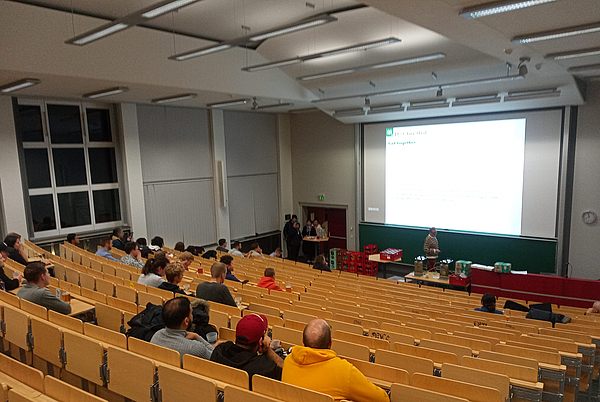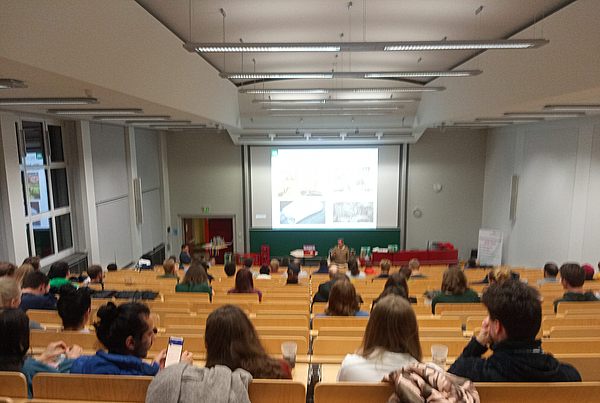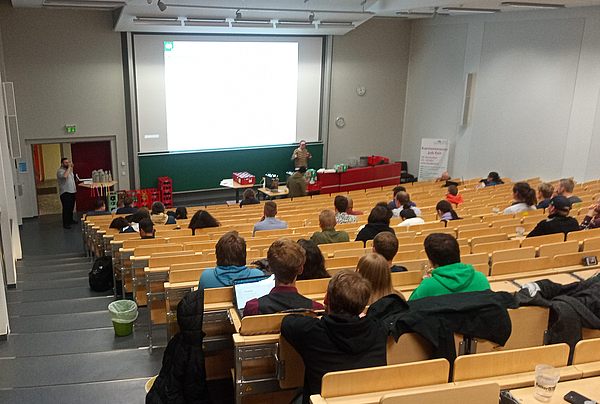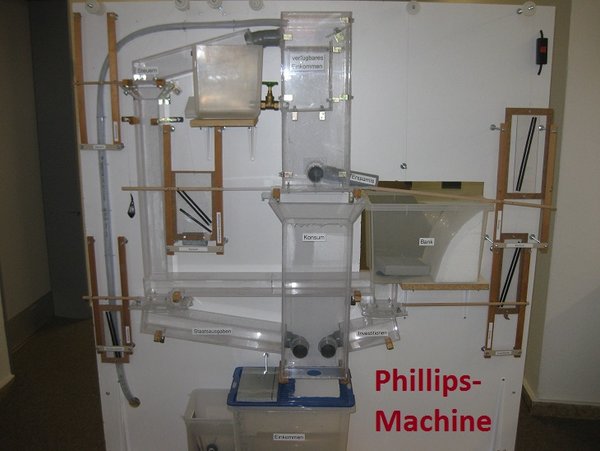Research
Energy and environmental economics are our main research areas. Conducting experimental economic research, we link problems of basic economic research with application- and practice-oriented energy economics questions. Our activities are directed both towards demand and market research oriented problems of energy markets, and towards the mapping and analysis of energy systems.
Deontologische Moraltheorie
Anlässlich des Kant-Jahres beschäftigen wir uns mit der zunehmend auch in der Verhaltensökonomik diskutierten Frage, ob und inwiefern der Widerspruch zwischen konsequentialistischen und deontologischen Moraltheorien für ökonomische Modelle des individuellen Verhaltens relevant ist. Ein Dissertationsprojekt unserer Abteilung und ein weiteres interdisziplinäres Forschungsprojekt untersucht mögliche Gegensätze zwischen deontologischer und konsequentialistischer Motivation,



Gamification und Experimentalökonomik
Gerne arbeiten wir mit Schulen bei der Verknüpfung von Gamification und Experimentalökonomik zusammen.
Link: Schüler experimentieren-mit der TU Clausthal
Klimapolitik
Bei unserer Beteiligung an dieser Veranstaltung der Leopoldina zur Klimapolitik haben wir interessante Diskussionsformate kennen gelernt, die die wir nun auch in unseren Lehrveranstaltungen erproben und anwenden.
Circular Economy
Unsere Beiträge zur gesellschaftlichen Diskussion um die Transformation zur Circular Economy können Sie im stream dieser von der Volkswagenstiftung organisierten Diskussion auf NDRInfo anhören bzw. anschauen.
Wärme- und Energiewende
Unsere Expertise zu aktuellen Fragen der Wärme- und Energiewende bringt Roland Menges als Mitglied der Arbeitsgruppe „Energiewende der bebauten Umwelt“ im Akademieprojekt Energiesysteme der Zukunft (ESYS) der Deutschen Akademie der Technikwissenschaften (acatech) ein.
Wasserwirtschaft des Oberharzes
Von unserer Beteiligung an interdisziplinären Projekten mit regionalem Bezug zur Wasserwirtschaft des Oberharzes erfahren Sie hier
Gemeinwohlökonomie
Ein durch die Diskussionen mit Studierenden in der Vorlesung „Gemeinwohlökonomie“ motiviertes Buchprojekt von Roland Menges und Michael Thiede ist mit einem (Geleitwort von Prof. Gesine Schwan) gerade bei Springer mit dem Titel „Die Ökonomie des Gemeinwohls“ erschienen.

Phillips-Maschine
Die Phillips-Maschine ist ein hydromechanisches Gerät, das in den 1940er Jahren von Alban William Phillips entwickelt wurde, um die Funktionsweise einer Volkswirtschaft visuell darzustellen. Es zeigt den Zusammenhang zwischen Geldstrom, Inflation und Arbeitslosigkeit. Dieses Thema wird im Kapitel 7 der Makroökonomie von Blanchard und Illing behandeln.
Link in Wikipedia: Die Phillips-Maschine
-
Research on the social acceptance of the energy transition
The aim of the research and development project AKZEPTANZ (ACCEPTANCE) is to derive statements on the social acceptance of the energy transition on the basis of a systematic recording of climate protection preferences at the individual level. It thus combines ethical-normative considerations with empirical investigations of individuals' real behavior based on economic incentives and social considerations.
For more information, please visit:AKZEPTANZ research project
-
Innovative methods for basic economic research
How do energy policy instruments affect the decision-making behavior of citizens? How fair do they perceive these instruments to be? Answers to these questions are particularly important for the political design of the energy transition. Previous research has already been able to make initial, empirically sound contributions to this with the help of new methods of experimental game theory. The approach is as follows: test subjects are given free access to certain information and must then make decisions with real financial consequences for themselves and others. Informing the subjects about these consequences in a complete and neutral way is crucial for the reliability of the experiments. Until now, this was only possible in individually developed mobile laboratories. However, innovative computer games developed as part of this program, which take gamers into a virtual energy transition world, open up new possibilities for basic economic research here.
For more information, please visit: Research project EnergiewendePlay
-
Planning, construction and operation of underground energy storage facilities.
The aim of this interdisciplinary project is to develop a scientifically sound concept for "Energy and Water Storage Harz" with the systemic coupling of energy and water management, which meets the future supra-regional requirements in the target dimensions of energy generation and storage, flood protection, drinking water production as well as low water discharge. For this purpose, different measures are systematically collected and subsequently compared with each other under cost-benefit aspects (also from an economic point of view). The aim is to identify those variants which provide the greatest overall economic benefit and to prioritize individual measures for later implementation according to this criterion.
For more information, please visit: Research project EWAZ
-
Innovative acceptance research for sustainable development through gamification
The research project aims to develop insights into individuals' sustainable behavior in situations characterized by conflicting goals, while at the same time enabling them to resolve these conflicting goals and make an individual contribution to sustainable development through suitable treatment structures, and learning and feedback effects. By linking the methods of experimental economics, which have so far been used exclusively in academic behavioral research, with the methods of gamification, which have so far been used predominantly in the field of entertainment, a contribution is simultaneously made to the social dissemination of activating sustainability research. The system boundaries are defined, the essential and technologically formulated fields of action at the system level are identified.
For more information, please visit: Research project GAME
As part of the Clausthal Laboratory for Experimental Economic Research (ExECUTe), we provide a mobile experimental laboratory in which participants simulate a variety of economic decision-making situations: we collect data that we expect to provide concrete answers to questions such as how households interact when making energy efficiency decisions and which parameters can be used to increase the cooperative behavior of households.
Technical key data:
- 20 wifi-enabled notebooks
- 3 servers
Accessories:
- Optical mice
- Power supplies
- Headsets
- Softcases



Mobile laboratory in action: Pupils experiment with TU Clausthal
